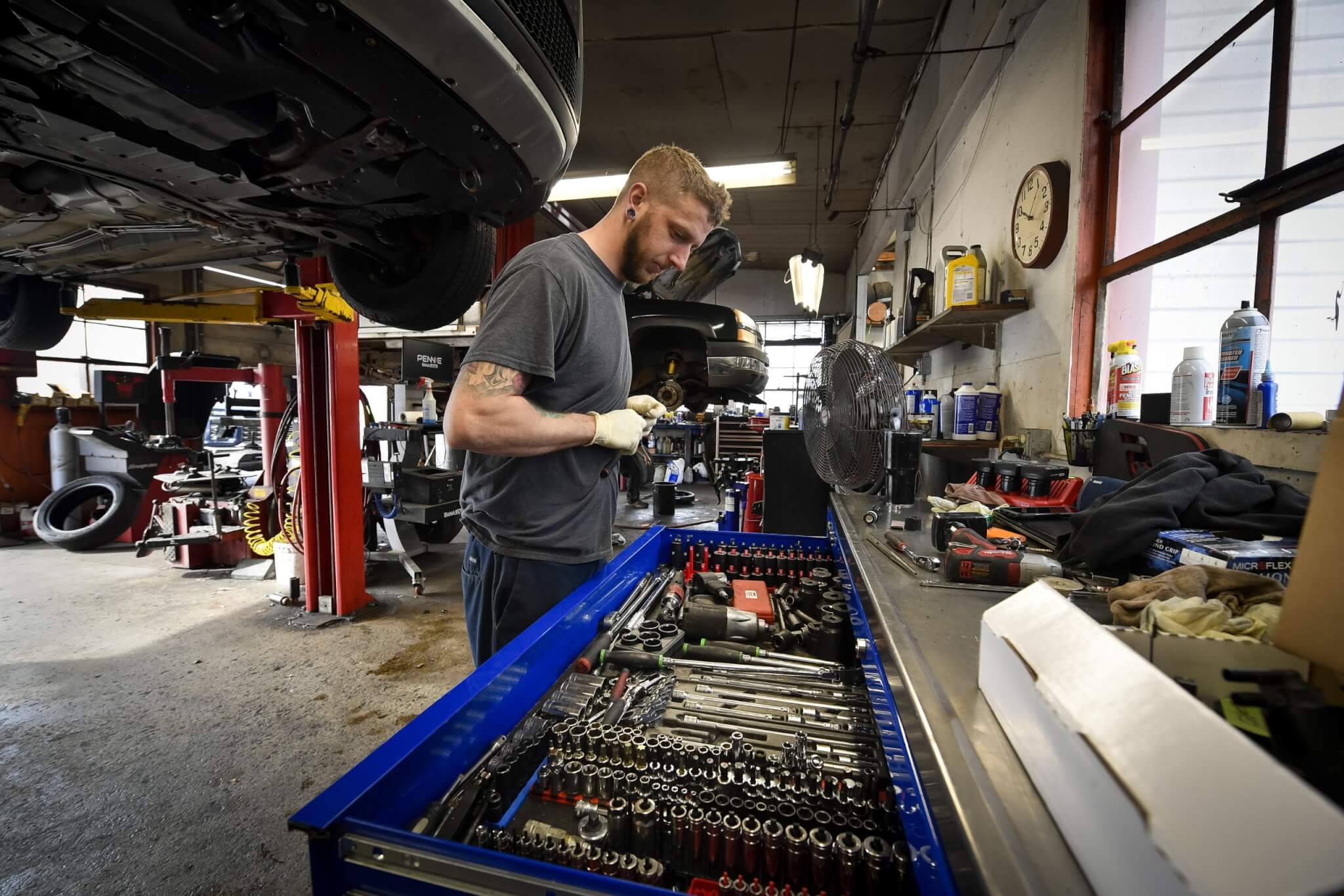All Categories
Featured
Your automobile's brakes are one of one of the most vital components in ensuring your safety and security and the security of others when traveling. Routine brake evaluations are essential to maintaining optimal stopping efficiency and staying clear of pricey fixings. Whether you're a skilled vehicle proprietor or a new vehicle driver, recognizing brake inspection guidelines can help you remain proactive regarding maintenance and ensure your vehicle is constantly roadworthy.
- Why Brake Inspections Issue. Brakes undergo continuous deterioration. The even more you drive, the much more rubbing your brake pads sustain, at some point resulting in reduced stopping effectiveness. Without correct assessment, it's hard to gauge when your brakes may be in demand of repair. Routine brake checks assist identify issues at an early stage, stopping possible failures that can place you at threat.
A well-maintained brake system ensures quick, receptive stopping power, especially in emergencies. It additionally assists expand the life of your lorry, as ignoring brake upkeep can result in a lot more severe, costly issues later.
- Indicators You Required a Brake Examination. While it's crucial to have your brakes inspected occasionally, particular indicators may show that they need focus. Watch (and ear) out for these caution signals:
Squeaking or Grinding Sounds: Uncommon sounds, specifically a piercing screech or grinding noise, frequently imply that your brake pads are used down. Resonance or Pulsation: If you feel resonances or a pulsing experience when pressing the brake pedal, it can be an indication of deformed blades or uneven brake pad wear. Decreased Brake Responsiveness: If your brakes really feel much less responsive or you have to push the pedal harder to reduce, it may show air in the brake lines or low brake liquid. Drawing to One Side: If your car pulls away when braking, it could mean irregular brake pad wear or a brake fluid leak. Dashboard Caution Lights: Some automobiles have brake-related caution lights that suggest problems like low brake liquid or used brake components. If you observe any of these signs and symptoms, it's important to have an expert mechanic perform a brake evaluation asap.

- What Takes place Throughout a Brake Assessment? During a brake inspection, an auto mechanic will certainly inspect numerous essential components of the stopping system to make sure whatever is in functioning order. Here's what you can anticipate throughout the process:
Brake Pads and Shoes: The technician will certainly inspect the density of the brake pads or shoes. If they're also thin, they'll need to be changed. Brake Rotors: Blades are the discs that the brake pads press versus to slow your vehicle down. They'll be inspected for any kind of signs of wear, racking up, or warping. Brake Liquid: Low or contaminated brake liquid can hinder braking performance. The specialist will examine the liquid level and high quality and leading it up or flush it if required. Brake Lines and Hose pipes: Brake lines carry fluid from the master cylinder to the brakes. The mechanic will certainly look for any type of leakages, splits, or damages to make sure appropriate fluid flow. Brake Calipers and Wheel Cylinders: Calipers and wheel cylinders push the brake pads versus the blades or drums. The technician will certainly look for wear, leakages, and proper operation. 4. Exactly how Often Should You Have Your Brakes Evaluated? The regularity of brake examinations depends on variables like your driving habits, the kind of automobile you drive, and the setting in which you drive. As a basic guideline, it's a great idea to have your brakes inspected every 12,000 miles or once a year. If you experience any of the warning indicators pointed out previously, it's important to get your brakes checked instantly.
For those that often drive in heavy website traffic, hilly surface, or extreme weather condition conditions, more regular examinations may be required.
- Significance of Timely Brake Services. When you identify an issue with your brakes, it's necessary to resolve it today. Postponing brake repair work can bring about even more substantial damages to your stopping system, resulting in greater repair expenses. In severe cases, neglecting brake issues can lead to finish brake failing, which is a significant safety danger.
By staying on top of brake upkeep and attending to problems quickly, you make sure that your brakes remain to execute as meant, keeping you and your passengers safe when driving.
Conclusion: Maintain Your Brakes in Leading Shape. Brake assessments are an easy yet essential part of lorry maintenance. By recognizing the relevance of normal assessments, understanding the signs of brake problems, and staying aggressive with repairs, you can ensure your automobile's braking system remains in optimal problem.
Latest Posts
Check Out Outstanding Car Repair Care from Montclare Auto Repair – Keep Your Car Running Smoothly
Discover the Best Auto Repair Coupons in Montclare, Chicago
Discover WyHy FCU – The Key to Superior Financial Services in Wyoming
More
Latest Posts
Check Out Outstanding Car Repair Care from Montclare Auto Repair – Keep Your Car Running Smoothly
Discover the Best Auto Repair Coupons in Montclare, Chicago
Discover WyHy FCU – The Key to Superior Financial Services in Wyoming
